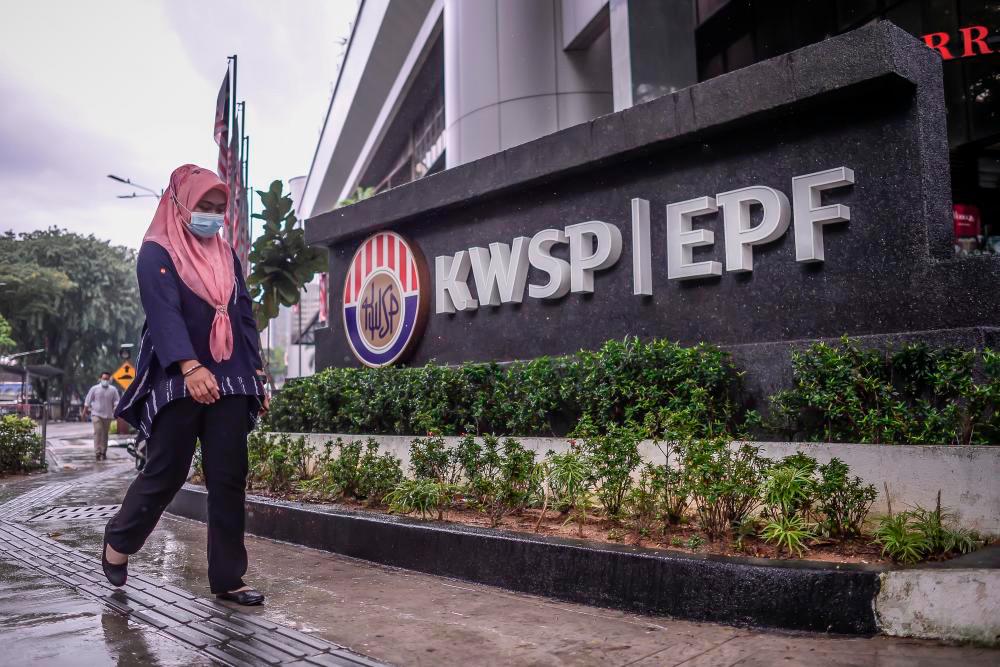IN response to Uni Malaysia Labour Centre (Uni-MLC) who had reportedly urged the government to increase the employers’ EPF contribution to 20% from the current 13% for those earning RM4,000 and below, Prime Minister Datuk Seri Anwar Ibrahim said the government would discuss the proposal and bring the matter to the Cabinet.
Since then, the issue has received many comments from various parties, including employers such as the Malaysian International Chamber of Commerce and Industry, the Malaysian Employers Federation, SME Association of Malaysia as well as others including economists and academics.
As usual, there are pros and cons to the suggestions.
Before any decision is made by the government, lawmakers should look and tackle the issue diligently by considering the impact of the decisions (short and long term) on whole communities (employers, employees and the public) as well as the economy as a whole.
Whatever decisions are to be made, be they accepting or rejecting the proposal, would have the chain-effects on the business communities, employees, the general public and the country’s economies.
Employers and their associations argue that the increase in the EPF contribution would burden them, especially the SMEs since many of them have yet to recover from the impact of the Covid-19 pandemic.
In addition, the recent government decision to increase the minimum wage from RM1,200 to RM1,500 has also affected businesses.
If the government insists on the additional EPF contribution, chances are that costs will be passed on to consumers, which in turn increases inflation further. This will surely hurt the people and the economy.
From an employee’s perspective, the increase in the employers’ EPF contribution will boost employees’ retirement funds, as claimed by Uni-MLC.
However, some view that in any case, a higher contribution to the EPF does not resolve the current predicament faced by lower-income workers, especially the B40 group.
The two years of the Covid-19 pandemic forced many from the lower-income groups to exhaust their EPF savings.
I am of the opinion that instead of relying on EPF savings, which are meant for their retirement, employees should have practised some “financial discipline” from the beginning of their employment or at a young age.
Financial discipline here means that they should learn and exercise financial planning for their lives and should be prepared for that rainy day.
Nevertheless, it is understood that not all people are financially literate and fortunate enough to secure any formal jobs, especially during those years.
Recently, there have been efforts by the government, NGOs as well as professional bodies or associations to educate the public on financial planning or financial literacy.
At higher learning institutions, for example, the Counselling and Credit Management Agency modules are made compulsory, to educate students to be at least aware and be able to manage their finances.
On the other hand, some economists such as Professor Dr K. Kuperan from Universiti Utara Malaysia argued that it is a good idea to increase the employer’s share of EPF contributions due to the low savings among the majority of contributors.
Furthermore, employers can use the increase in EPF contributions to claim tax deductions.
From the government’s perspective, they can borrow the additional contributions for development purposes.
In my view, being a government, they need to rationalise and be able to strike a balance between the continuity and survival of businesses, the pressures from unions or employees as well as the country’s economies.
There are a few suggestions that may be considered by the government before making its stand on this issue:
0 Firstly, it is better for the government to create more high-value jobs and industries instead of harping on the existing EPF contribution.
This way, it will create more employment for the rakyat and further enhance the country’s economy.
0 Secondly, if it were to increase the EPF contribution by employers, it should not be up to 20% since it is a jump of 7% from the current contribution, it would surely hurt many businesses.
The increment can be done at a lower amount and with gradual implementation over a certain number of years.
This will enable businesses to adjust and absorb the increment as part of their costs.
0 Thirdly, encourage and educate Malaysians to better manage their finances and instil some financial discipline among the public.
This initiative could commence as early as during primary school if not at kindergarten.
This long-term initiative would see more resilient populations in the future face any financial challenges.
0 Lastly, government and the public should think of other ways to overcome the issue of high cost of living and insufficient funds to survive in the current economy and not use the EPF savings, unless absolutely necessary.
Looking back at the original intention or objective, contributing to EPF is to prepare and cater for the post-employment (retirement) or contingencies only.
The writer is the dean of Uniten Business School, Universiti Tenaga Nasional. Comments: letters@thesundaily.com









